The science behind your best ideas (and how to have more of them)
Why mind-wandering is the secret to creative breakthrough
You can listen to this post on YouTube.
***
We’ve all been there – staring at a blank page, stuck. If you ever find yourself trapped in a creative rut or endlessly circling the same problem, there are two simple questions you can ask to unlock fresh ideas and save yourself a whole lot of time and frustration.
First, we need to set the parameters. So, tell me this: When and where do you experience your creative blocks?
Most of us get stuck like this at work but it'll happen in other contexts too: hobbies, creative pursuits, deciding what to cook for a dinner party… whatever. See if you can think of one example to keep in mind as you read this article.
Then, when you have that, we need to consider the opposite state of mind: What are you usually doing when you have your very best or most innovative ideas?
Do brilliant insights pop into your mind while walking, reading, bathing? Does exercise help? We'll all have slightly different answers to this question but there are some activities and environments that seem to have a fairly universal effect on our creativity, and it's these we're going to leverage with the tool I'm sharing today.
The Shower Effect
The "shower effect" is the term given to the particularly insightful and creative state of mind enjoyed (often but not always) in the shower.
While showering, you're generally not focused on some work-related problem, which means your mind can wander, leading to ideas that might not have come up otherwise. Additionally, the shower can help by stimulating dopamine and by creating an environment in which distractions are minimised and sensory input lessened because the white noise of running water masks other sounds and you're generally in a small familiar space.
The "shower effect," though, is not limited to washing – which is a good thing, because showering every time you hit a block wouldn't be super practical.
In a 2019 study (you can find all references at the bottom), 98 professional writers and 87 physicists recorded their most creative ideas each day, along with what they were doing and thinking when they occured. While the majority of ideas cropped up at work, the ideas the writers and scientists had away from their jobs – i.e. while showering or exercising, washing the dishes, etc. – were more likely to be aha! experiences that helped them overcome a creative impasse. Moreover, this study found that we feel happier while engaged in this kind of mind-wandering, than when actually on the task.
Mind-wondering
So, rather than "mind-wandering", which generally has negative associations, the lead researcher on that study calls this happy, productive and creative kind of thinking "mind-wondering." It can happen during any non-work-related activity as long as that activity sits in a sweet spot between too stimulating and not stimulating enough.
If you're familiar with the work of Mihaly Csikszentmihalyi, then you'll recognise these as the conditions for a state of flow. We can get into flow, and start mind-wondering when we're doing something that isn't so exciting that we need to focus on it intently, but also isn't so dull that we start to feel bored.
Here's a cool little experiment that shows the shower effect (sans shower) in action:
In a 2022 study, over 300 university students were asked to consider novel uses for ordinary objects such as a brick or paperclip. They were given 90 seconds to think of as many creative uses for these items as they could.
The students then watched either a boring video of two men hanging laundry or the more engaging but likely familiar clip of the deli scene from “When Harry Met Sally.” This activity allowed time for the students’ minds to wander. Afterwards, when they were asked to come up with novel uses for ordinary objects a second time, their mind-wandering led to more creative ideas, but only for the students who watched the moderately engaging deli scene. The boring clip had no significant effect.
Cultivating "mind-wondering"
The active ingredient here is the brain's default mode – a kind of hypnotic state we go into when doing something routine. That's how we find flow, achieve a little mind-wondering and have our most creative ideas.
The great news is that there are many, many ways to activate your default mode.
Generic suggestions would include going out for regular walks, exercising or taking a shower, of course. But pausing work to do a little tidying, an easy crossword, cooking, knitting, doodling or anything else you can get absorbed in without having to really think about what you're doing will likely have the same effect.
I'd say the biggest challenge here is to have faith in the power of this tool. If you're anything like me, when stuck you'll be tempted to keep hammering away at a problem, convinced you just need to focus. In reality, you'll be much more effective with frequent breaks, so long as they meet the criteria outlined above.
So, let's come back to the second question I asked at the beginning of this article:
When and where do you have your very best or most innovative ideas? Your answers to this question – along with similar activities – will show you the way to your own mind-wondering hotspots.
If you don't yet have an answer, then start paying attention. Make a note of where you are and what you're doing when you have your next surprisingly good thought. Because whatever that activity is, it could be your very best and most magical creativity booster.
References
The Shower Effect: Mind Wandering Facilitates Creative Incubation During Moderately Engaging Activities; September 2022; Psychology of Aesthetics Creativity and the Arts; DOI:10.1037/aca0000516
"Why do we get our best ideas in the shower? The science of shower thoughts teaches us the importance of mind-wandering for creativity", Richard Sima, The Washington Post, January 12, 2023
Gable, S. L., Hopper, E. A., & Schooler, J. W. (2019). When the Muses Strike: Creative Ideas of Physicists and Writers Routinely Occur During Mind Wandering. Psychological Science, 30(3), 396-404. https://doi.org/10.1177/0956797618820626
Irving, Z. C., McGrath, C., Flynn, L., Glasser, A., & Mills, C. (2022). The shower effect: Mind wandering facilitates creative incubation during moderately engaging activities. Psychology of Aesthetics, Creativity, and the Arts. Advance online publication.
Thank you for reading!
We’re Hazel (ex boxer, therapist and author) and Ellie (ex psychology science writer). We left our jobs to build an interactive narrative app for self-awareness and emotion regulation (Betwixt), which you can try on Android here and on iOS here.



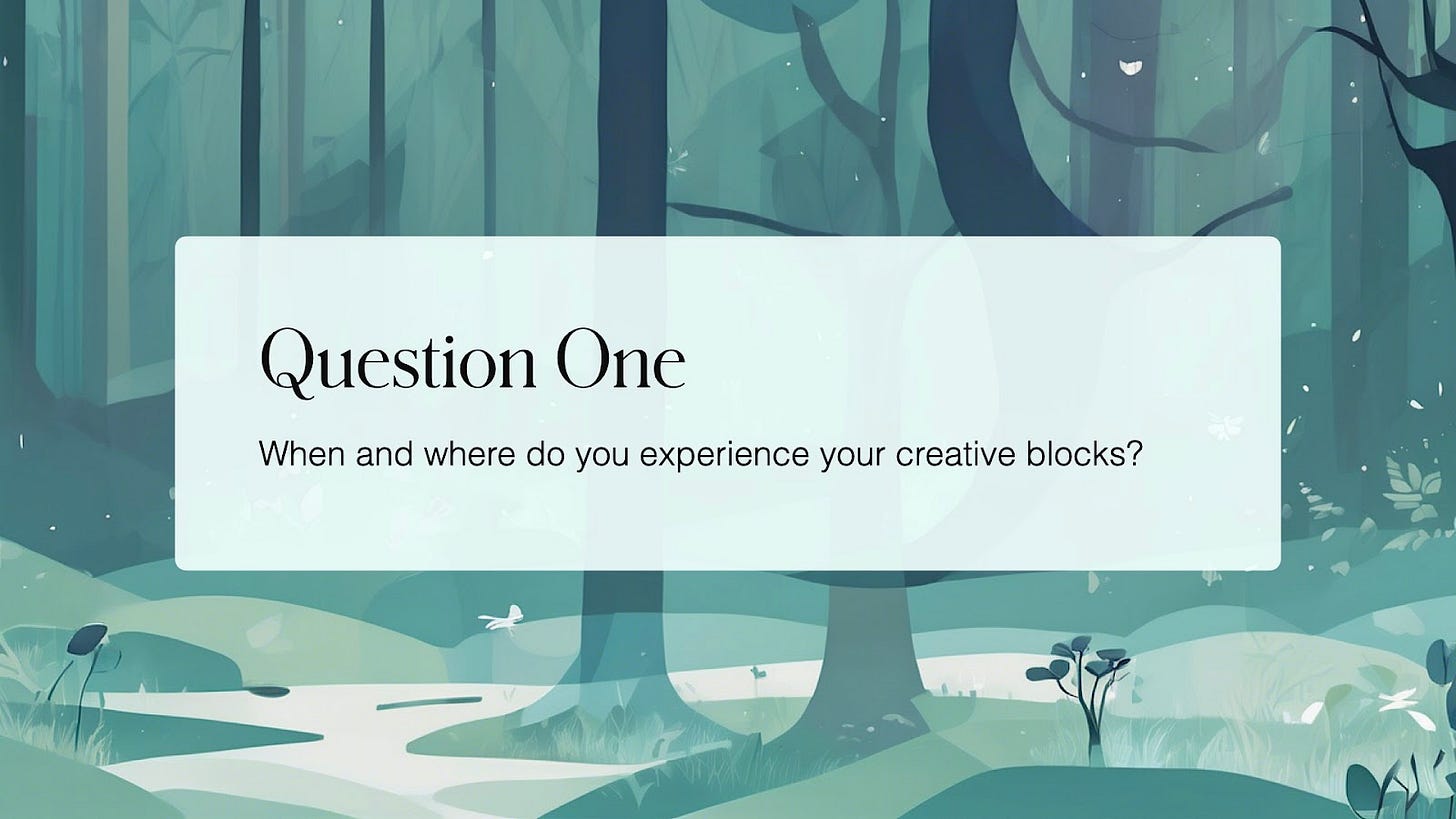
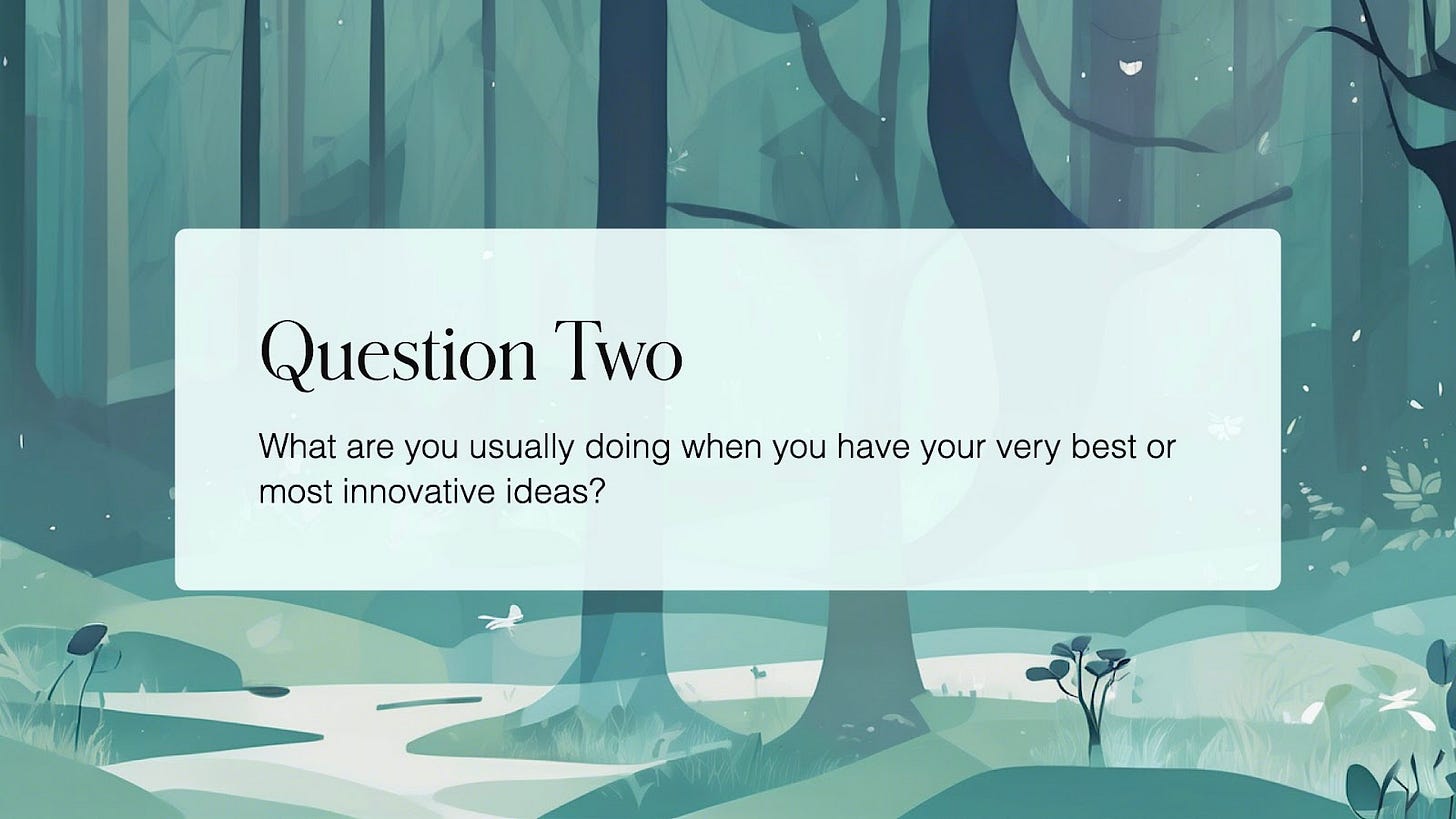
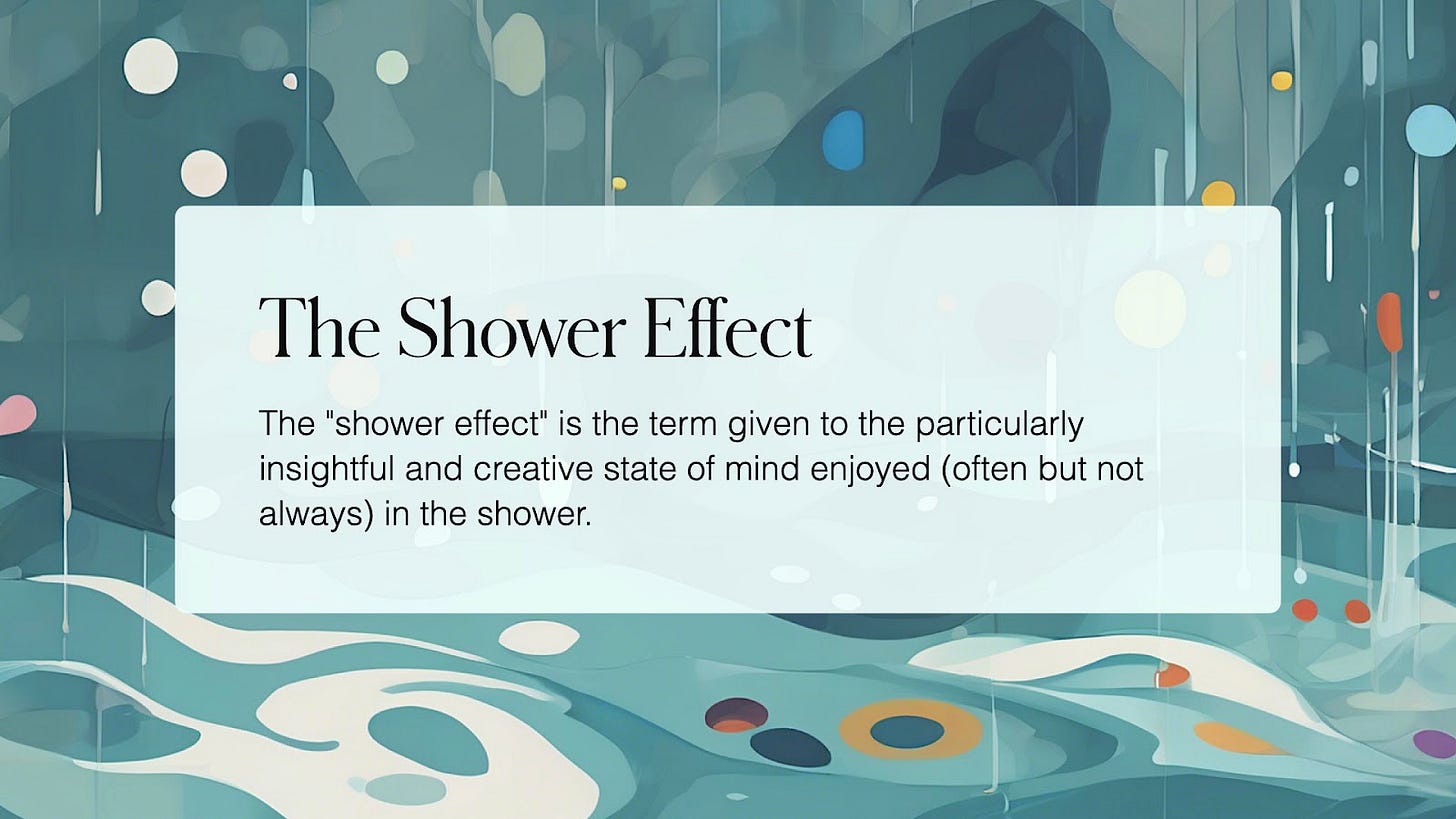


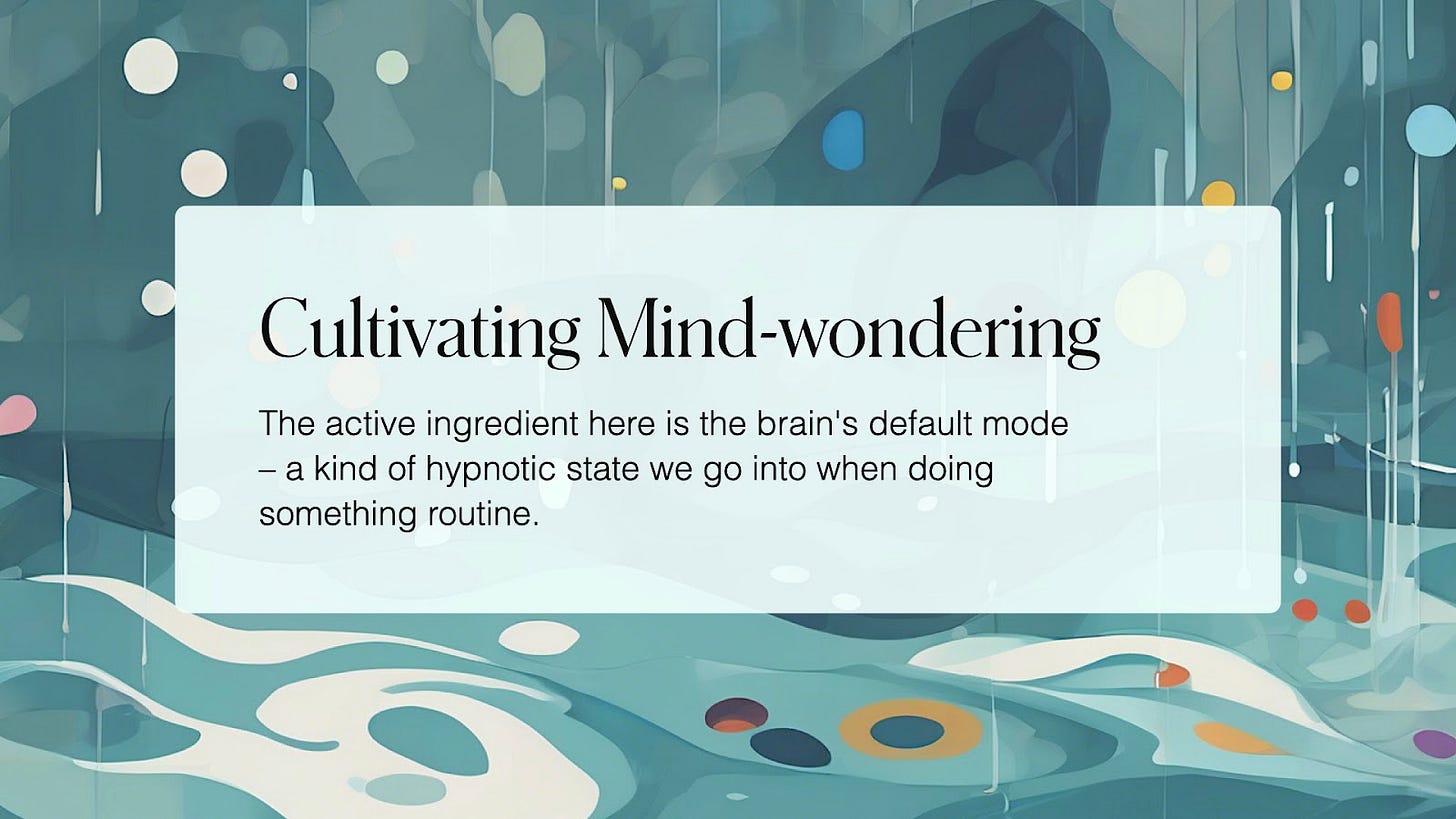
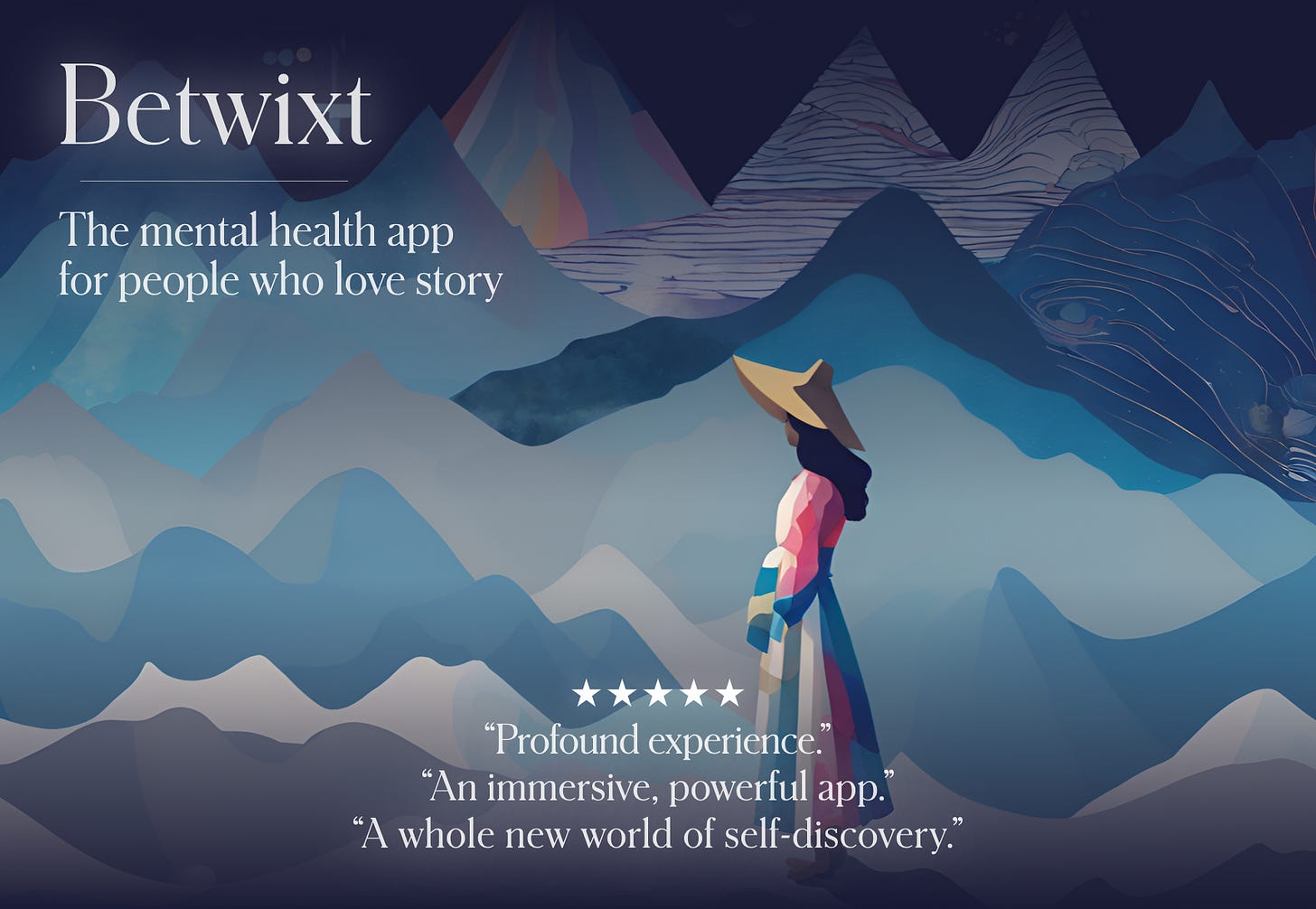
I didn't realize that there was an official name for the thing that happens specifically when I'm in the shower, that HAS shower in the name. Lol. That or about to fall asleep.
Mine happen when driving. I suppose it's the moderately engaging thing in action.